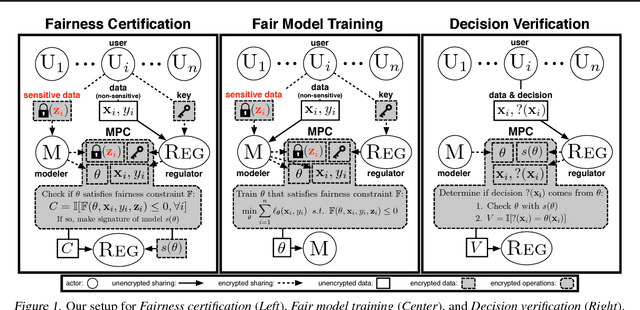Blind Justice: Fairness with Encrypted Sensitive Attributes
Paper and Code
Jun 08, 2018



Recent work has explored how to train machine learning models which do not discriminate against any subgroup of the population as determined by sensitive attributes such as gender or race. To avoid disparate treatment, sensitive attributes should not be considered. On the other hand, in order to avoid disparate impact, sensitive attributes must be examined, e.g., in order to learn a fair model, or to check if a given model is fair. We introduce methods from secure multi-party computation which allow us to avoid both. By encrypting sensitive attributes, we show how an outcome-based fair model may be learned, checked, or have its outputs verified and held to account, without users revealing their sensitive attributes.
* Proceedings of the 35th International Conference on Machine
Learning, PMLR 80:2630-2639, 2018 * published at ICML 2018
 Add to Chrome
Add to Chrome Add to Firefox
Add to Firefox Add to Edge
Add to Edge